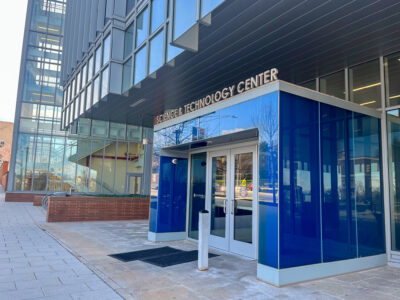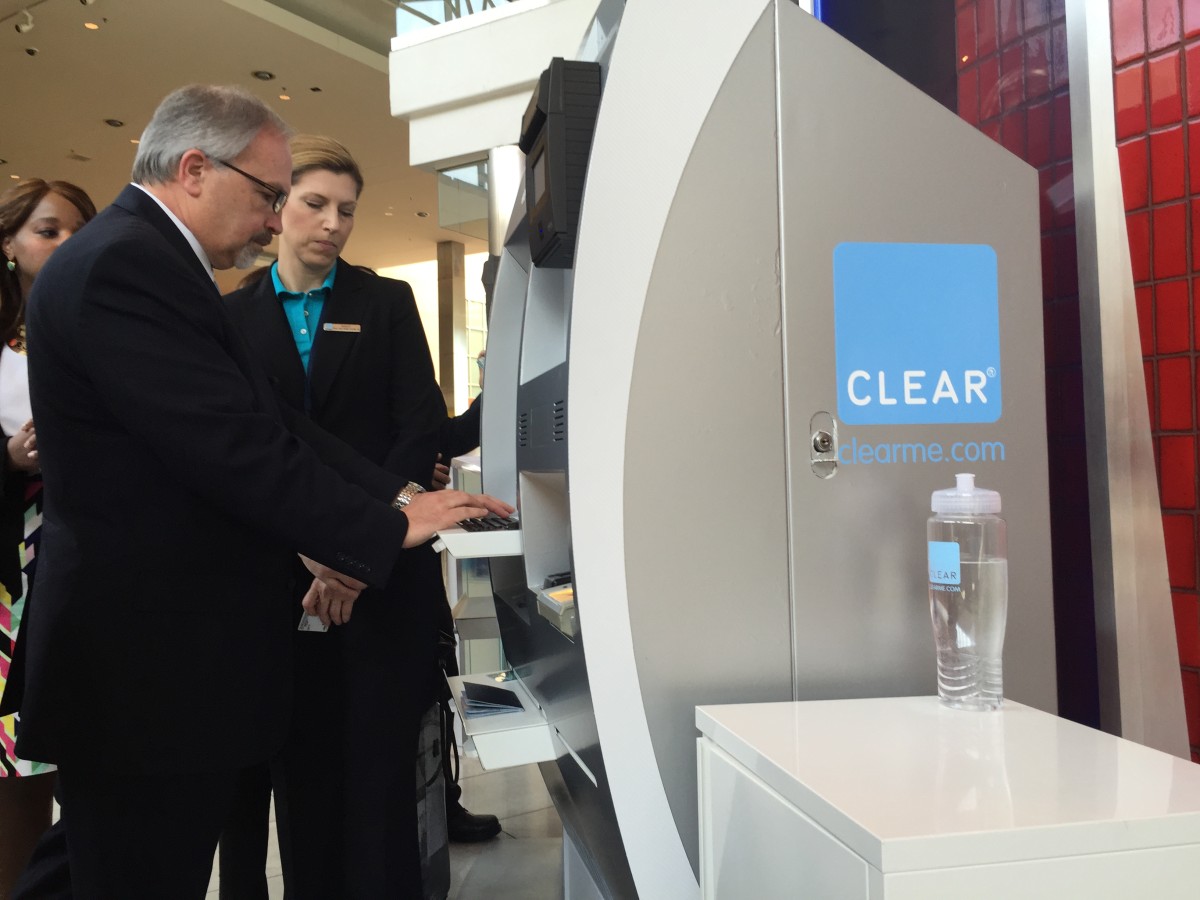Airport security is starting to move toward using biometrics to verify identity, and in this case the government isn’t leading the charge.
CLEAR, a New York-based company, recently added BWI to the list of 11 airports that use its iris-scanning and fingerprinting technology to help passengers speed along in the boarding process.
Travelers have to pre-apply with the company. They’re asked to show an ID. Then, the company takes fingerprints or iris scans — whichever a traveler chooses. Customers then receive a card that allows them to get scanned at an airport kiosk rather than waiting in line to show their driver’s license or passport.
Along with cutting out the lines, CLEAR Senior Vice President Charmaine Taylor said the process is more secure because it removes the human element of having a TSA officer look at an ID.
“We absolutely know that it is you because there’s only one fingerprint that matches you,” she said. “So it’s faster and more secure.”
It’s not a replacement for TSA’s Precheck, which allows travelers to pre-apply and bypass the mass clothing removal that has become a fixture of air travel. But Taylor said it can easily be paired with the Precheck program to avoid waiting in both phases of the security line.
Asked about people who are potentially worried about surrendering their fingerprints and iris scans, Taylor said the information is encrypted by the company.
“We’re a private company,” she said. “We don’t share the information with anybody.”
At BWI, the service will be offered at concourses B and D. It currently costs $15 a month.
Join the conversation!
Find news, events, jobs and people who share your interests on Technical.ly's open community Slack

Baltimore daily roundup: Real estate deal in the Peninsula; Missing $100M nitrile glove factory; Dirt bike clampdown

Baltimore daily roundup: Gen AI's software dev skills; UpSurge Tech Ecosystem Report; MD service year program

Baltimore daily roundup: Mayoral candidates talk tech and biz; a guide to greentech vocabulary; a Dutch delegation's visit



